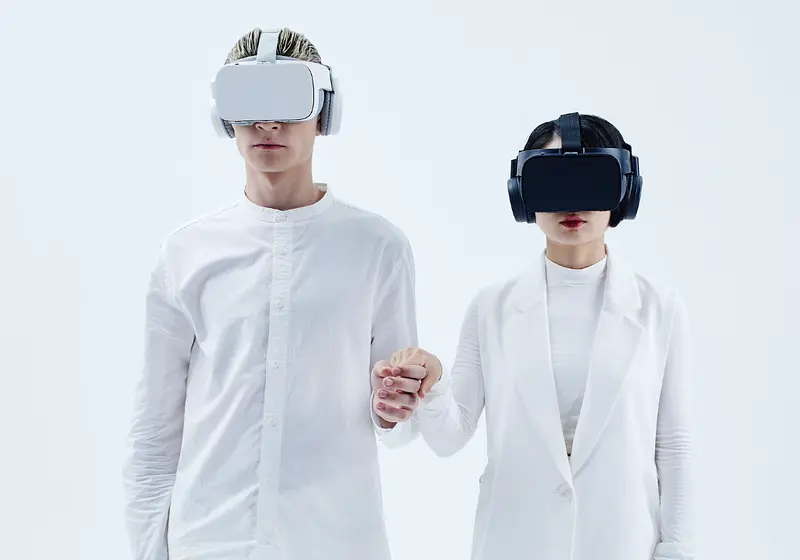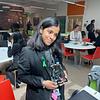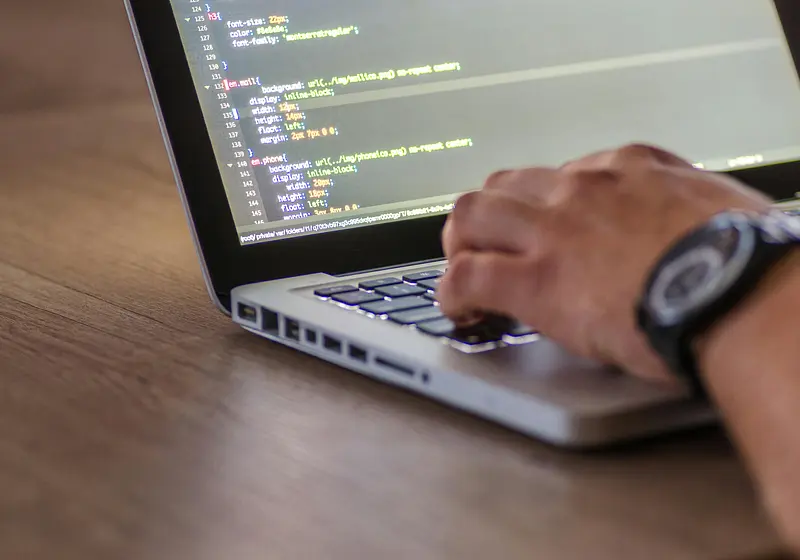Artificial Intelligence (AI) has accelerated from science fiction into our everyday lives faster than anyone could have ever imagined. And yet, amidst all the frenzy, there is one huge question that keeps rising, especially for ambitious teens: Is AI coming for your dream job? Will robots and computer algorithms replace doctors, engineers, journalists, artists, and other professionals — or will AI transform and revolutionize how we work without completely taking over? And with our future jobs in mind, some wonder: will AI quietly reshape the world — or take it over entirely?
If you're a teenager like me, pondering your future profession, you might find this question intimidating. But let's not panic just yet. Let's break down what AI actually is, how it operates, and what the experts have to say about how it will affect work. This article will lay it all out in simple terms so that whether you aim to be a surgeon, software programmer, or a singer, you will know what's happening and what to expect.

Image Credit: Jonathan Kemper from Unsplash
Let us slide into your dms 🥰
Get notified of top trending articles like this one every week! (we won't spam you)What Is AI and How Does It Work?
Essentially, AI consists of computer systems with the ability to carry out tasks that usually involve human intellect. These can include understanding language, recognizing images, making decisions, and even creating art or music. The power behind AI is mainly machine learning — a technique where computers learn from large amounts of data in order to recognize patterns and improve over time without being explicitly programmed for every piece of information.
Most AI systems today now work based on something called neural networks, which emulate the way our brains process information. These networks hold layers of algorithms that can analyze complex data, like photos, texts, or medical records, and "learn" to make predictions or decisions.
Big tech companies are leading the AI revolution in very different ways, each contributing to the way work is changing. Google DeepMind is focused on scientific research and healthcare applications, like their AlphaFold model that can precisely predict protein structure and could potentially wholly revolutionize drug discovery. OpenAI, who created ChatGPT, constructs powerful language models applied in education, journalism, customer support, and more — enabling faster writing, coding, and problem-solving.
Anthropic, Claude's (family of large LLMS/large language models) creator, is most concerned with AI system security and making AI more controllable, often in collaboration with government and corporate customers interested in responsibly integrating AI. IBM, the one of the oldest tech giants, applies AI to the medical, financial, and business realms — their Watson Health division helps doctors analyze patient data and recommend treatment. And Hugging Face, a hub of open-source AI innovation, allows developers and researchers to build their own AI models for language, vision, and science, meaning AI software is now more accessible than ever.

Image Credit: Owen Beard from Unsplash

Take the Quiz: Which Language Should You Learn Next?
Want to learn a new language, but don't know which one to pick? Take this quiz and find out!
A Brief History of AI
AI’s development started decades ago with scientists like Alan Turing, who imagined machines that could think, and later John McCarthy, who coined the term "Artificial Intelligence" in 1956. For years, AI remained mostly a research topic with limited real-world impact. But recent advances in computing power, especially GPUs (graphics processing units), and the explosion of data available online, have turbocharged AI’s growth.
Back in the early 2000s, AI was mostly rule-based and rigid. Now, with technologies like deep learning (“a type of machine learning that uses artificial neural networks to learn from data” according to Google Cloud) and large language models (like OpenAI’s GPT series), AI can understand and generate human-like text, translate languages, and even write code.

Image Credit: Austin Distel from Unsplash
What Experts Are Saying About AI and Jobs
Arvind Krishna, CEO of IBM, has stated that AI is primarily transforming white-collar jobs, not blue-collar jobs. To explain:
- White-collar jobs would feature professional or office jobs — picture lawyers, doctors, engineers, accountants, and managers.
- Blue-collar jobs typically describe work done with hands(manual labor), e.g., factory workers, electricians, or construction laborers.
Krishna's argument is that although blue-collar work has become automated for years (e.g. robots building cars), AI will have its greatest impact on jobs that involve brain work — the sort many of us dream about. And he went on to highlight that AI would transform these jobs rather than just replace them. And no, they won’t take government jobs (most likely).
Some experts, like Google’s Sundar Pichai, believe AI will work with us rather than against us. Others, like Geoffrey Hinton, warn that it may lead to serious job losses. Let’s look at both perspectives.
Sundar Pichai, the CEO of Google, once said:
“The future of AI is not about replacing humans, it's about augmenting human capabilities.”
That is, AI will be a powerful tool that allows doctors to analyze scans faster, helps engineers to build safer buildings, and allows reporters to write quicker, but humans will still remain essential. It won’t take over the world or job market but it will try to make our everyday jobs more efficient in the future.
Dario Amodei, CEO of Anthropic, a startup company with the mission to build safe, controllable AI, recently stated that although AI is a significant shift, it's not about "machines taking over." Rather, AI is more like a partner — a way to augment human intelligence so humans can concentrate on creativity, strategy, and human-to-human interaction.
Despite this, there are also many arguments about AI being able to actually take jobs. Here is an excerpt from Business Insider, where Geoffrey Hinton, “The Godfather of AI”, gives his take on the issue:
Some argue that the fear that AI will displace entry-level work is overblown. Hinton agreed with the idea that some roles will be replaced by humans working with an AI assistant rather than just the technology, but he said that means one person will do what used to be the work of 10 people. For many industries, he said, that will mean mass firings.
A few areas, like healthcare, will be able to absorb the change, since there's almost endless demand.
This reflects a more cautious view compared to others like Bill Gates, who remains more optimistic about AI creating new types of work.
Just a few months ago, Gates spoke and said that in the next ten years, AI can do most jobs—doctors and teachers included—while some types of jobs, such as energy specialists and biologists, will still be necessary for the time being. He also noted that those people who know how to utilize AI—instead of just avoiding it—will be priceless.

Image Credit: Austin Distel from Unsplash
Which Jobs Are Most Affected and When
Many studies (e.g., the World Economic Forum's Future of Jobs Report) predict that AI will have a greater effect on some occupations than others.
Some jobs with major landscape changes within the next 5-15 years can be medical imaging analysts, such as radiologists, financial analysts, customer service and telemarketers, and routine legal work-related jobs.
It’s important to remember that job tasks are being automated more than entire job roles, especially in the near future.
More likely, jobs that require more creativity, such as art, music, and writing jobs, will not change as much due to AI, because while AI can generate material, it can’t compete with human creativity or emotional connections. In the same way, teaching and social working professions and jobs will not be as impacted compared to other jobs because personal interaction and empathy are irreplaceable.
Here is an article from Forbes that talks about the jobs that may be taken first, as well as their effect on future generations (and ours too!)

Image Credit: Accuray from Unsplash
What Does This Mean for Popular Careers?
- Doctors/Physicians: AI tools like IBM Watson Health help doctors diagnose diseases by analyzing vast amounts of data. While some specialties like radiology and pathology will automate routine tasks soon, doctors will still be needed for patient care, surgeries, and complex decision-making.
- Engineers: AI accelerates simulation, testing, and design, especially for civil, mechanical, and software engineering. But human creativity and problem-solving in the real world cannot be replicated, and will remain essential.
- Journalists: AI can help by generating reports, summarizing news, or fact-checking, but the human role in investigating, interviewing, and storytelling will remain critical.
- Artists and musicians: AI can create music and art, but human artists will still lead the culture with original, compelling, and work.

Image Credit: Igor Omilaev from Unsplash
AI Isn’t Just Reshaping Jobs – It’s Creating Them Too
While AI will replace or change some professions, it's also going to create tens of millions of new ones. According to the World Economic Forum's Future of Jobs Report 2023, AI and automation will create 69 million new jobs globally by 2027, as 83 million jobs may change or vanish. These new professions include AI specialists, data analysts, prompt engineers, robotics technicians, and AI ethicists—jobs that hadn't existed a few years ago.
Even traditional careers like teachers, doctors, and designers will need people who can collaborate with AI. So instead of eliminating opportunity, AI is transforming the nature of work, and teenagers who are able to learn to work with AI tools will be leading the way into that future.

Image Credit: Christina @ wocintechchat.com from Unsplash
My Take
I truly believe that AI is going to displace a lot of work, especially repeat-task work—call center workers, data entry workers, and low-level analysis. But we should also acknowledge that some experts believe AI may displace workers faster than we think — so it’s important to be proactive, not passive. I believe what will keep our careers afloat is knowing how to use AI, and not resist it. One Reddit AI expert explained it beautifully:
"AI won't replace humans—but those who use AI will replace those who don't"
Once again, last week, the so-called "Godfather of AI," Geoffrey Hinton, warned that "for mundane intellectual labour, AI is just going to replace everybody," pointing out that repetitive office work like paralegals and call-center employment are already in very serious jeopardy. He even suggested plumbing could be one of the safest avenues, as AI can't yet substitute for physical labor.
So here is what it comes down to: yes, AI will automate certain jobs—but not the people who learn to master it. If you're able to collaborate with AI, use it to get to answers, and insert human judgment where it's needed, your job will shift, not evaporate. That's how we future-proof our aspirations.
How Can You Prepare Your Future Job for AI?
If your dream job is at risk of being automated by AI, here's what you can remember or do to prepare for it:
- Your work can be unique and personal: While AI can perform routine tasks, it cannot substitute creativity, empathy, leadership, or nuanced judgment.
- Learn to work with AI: For instance, doctors can have AI scan data more quickly, but still have the final say. Learning how to work with it will be necessary in the new job market
- Develop skills in AI and technology: Coding, data analysis, and AI literacy are skills that will be needed regardless of your profession.
- Emphasize lifelong learning: The labor market will continue to evolve, so flexibility is the way to go.
Conclusion: Will AI Take Your Job?
Probably not completely — at least not too soon. Most experts agree that AI will change jobs more than take them. AI will be a powerful assistant, making people faster, smarter, and more creative.
At worst, your dream job might be radically different in 10 or 20 years — more digital, more data-driven — but it likely won’t disappear altogether. And with the right skills and mindset, AI can be an aid that helps you succeed, not a threat that replaces you. If anything, it will take certain tasks within jobs, and even if some roles are eventually phased out, it is not going to happen all at once.
So… no; it won’t be taking over the world anytime soon... at least... maybe? There's no way to figure this out, but we as humans must find ways to combat it by doing what we do best — by learning always, by always being empathetic, by being what AI can't for the time being.
AI isn't about replacing us — it's about redefining what we do best. The future won’t belong to robots. It will belong to the humans who know how to work with them.
The truth probably lies between the extremes. AI might eliminate some paths, but it’s also opening doors we never imagined — and it’s up to us to step through them wisely.













.jpg)